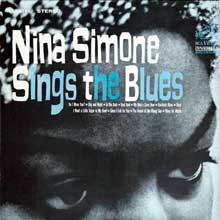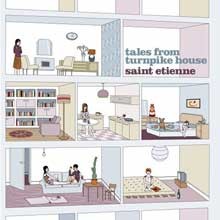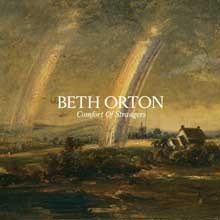Easy listening for sophisticates
I remember the startled feeling I got some years back when, in rooting through a square Big Chain record store, I realized that some of the discs I wanted were in the “Easy Listening” section. What? Who decided that Nat King Cole and Sarah Vaughan belong beside hopeless dorks like Pat Boone and Perry Como? Did they not want my money?
Upon reflection I had to admit that some of my favorite records in college — Angelo Badalamenti’s Twin Peaks score, the Cocteau Twins, etc. — were pretty damned easy to listen to, and that didn’t make them lame. In that spirit, I offer some new releases that soothe the ear without numbing the brain:
Speaking of the Cocteau Twins, former member Robin Guthrie teamed with Harold Budd to write some beautiful hazy-cloud music for a decidedly unbeautiful film, Mysterious Skin. The soundtrack is out on Commotion records, and it’s a wonderful ambient atmosphere — especially for those who haven’t seen the tale of child molestation and brutality it was composed to accompany.
Another star of the ’80s art-pop scene, David Sylvian, continues to make seductive music for his own Samadhi Sound label (samadhisound.com). His latest outing, Snow Borne Sorrow, is credited to the band Nine Horses, whose members include Steve Jansen and Ryuichi Sakamoto. But as with his previous bands, Sylvian is the dominant personality — his deep, weathered voice intoning philosophy over fuzzy wind instruments and low-key but persuasive electronic beats.
Sylvian records make-out music with lyrics about “the banality of evil”; a similar disjunctive quality is all over the records of Nina Simone, three of which (Sings the Blues, Silk & Soul, and Forever Young, Gifted and Black) were just reissued by RCA/Legacy. Sings the Blues in particular walks the tightrope between good-time music and ache: “In the Dark” makes you want to take your pants off, but Simone’s voice spills over with echoes of broken promises, and “My Man’s Gone Now” is just heartbreaking if you stop canoodling long enough to listen to it.
Moving on to happier, easier sounds, we have Re-Whipped (Shout Factory), a second spin on Herb Alpert’s hugely successful Whipped Cream LP. (Yes, this one has an appropriately slutty take on the original’s famous cover concept.) Old tunes get remixed by Thievery Corporation, Medeski Martin & Wood and others; John King’s version of “A Taste of Honey” is especially loungeriffic, while Mocean Worker sounds like he was born for “Bittersweet Samba.”
Back in the present, Saint Etienne fans who feared the group was defunct can get giddy over Tales from the Turnpike House (Savoy Jazz), a concept album without all that drama one usually expects from such things. Warm and mellow, no stranger to flute solos and “ooh ooh ooh” choruses, it gets more techno/disco as it goes on, and will sound great in the kind of upscale bars that aspire to a vibe of jet-setting dissolution.
Lastly, Cat Power isn’t the only deceptively waifish songwriter with a fantastic new album out. This week sees the arrival of Comfort of Strangers (Astralwerks), which should serve as a rebuke to anyone who considered writing off Beth Orton after the disappointing-to-many Daybreaker and the nearly four-year silence that followed it.
Produced by Jim O’Rourke, who recently ended his tenure in Sonic Youth to pursue filmmaking projects, the disc doesn’t go the “experimental” route you might expect. Despite some interesting arrangement decisions, the record’s feel makes it clear that Orton represents the future of folk music, not of trip-hop or whatever beats-and-bubbles genre initially wanted to claim her as its own.
The disc gets off to a swinging start with the bitter-sounding “Worms,” a piano-heavy declaration that begins: “worms don’t dance, they haven’t got the balls.” It quickly moves into more comprehensible territory, with a tune about “those who preach forgiveness while practicing revenge” and a few gorgeous, introspective numbers that remind fans what they heard beneath the samples on Orton’s debut album. The tempos are peppy but unhurried, so when the actual rocker “Shopping Trolley” arrives near the end, complete with cymbal crashes and thrumming bass, it carries a cathartic weight appropriate to its lyrics: “I think I’m gonna cry, but I’m gonna laugh about it all in time...”
“Shopping Trolley” isn’t loud or hard enough to disrupt the airily organic vibe Orton and O’Rourke have set up, which is the kind of thing Nick Drake would surely endorse if he were still around. Whatever troubling thoughts enter the songwriter’s head, she knows how to clothe them in music that goes down easy. •
By John DeFore




